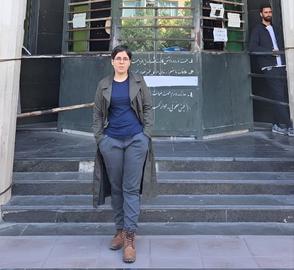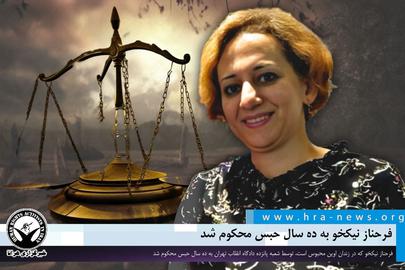The Islamic Republic's judiciary chief, Gholam-Hossein Mohseni-Eje'i, expressed concern about the current state of "hijab and chastity" in the country.
This comes less than a week after Supreme Leader Ali Khamenei reaffirmed the country's mandatory hijab rule.
Mohseni-Eje'i believes existing laws can improve the situation until a new bill is passed.
He also linked the decline in "psychological security" to the hijab issue, suggesting that opponents were "disrupting social order."
Mohseni-Eje'i comments are not new. He previously called for stricter enforcement using existing laws while the "Chastity and Hijab" bill was debated.
Mohseni-Eje'i views opponents of the hijab as "playing into enemy hands" and advocates legal action against them.
His statements have been linked to harsher treatment of women and stricter hijab enforcement within institutions.
The news coincides with the "Chastity and Hijab" bill nearing its final reform stage.
The Guardian Council, a vetting body, previously identified flaws and returned the bill to parliament for revisions.
The main issue appears to be classifying violations as crimes or offenses. A resolution is expected soon.
The bill, which the government of Ebrahim Raisi presented to parliament on May 24 last year, outlines severe penalties for women who violate mandatory headscarf rules.
Non-compliance with the Islamic Republic's strict dress code is deemed as "nudity."
Offenders could face fines of up to 8 million tomans ($150), which could double if not paid within a month, job loss, and a one-year ban from social media activities.
Repeat offenders would face imprisonment for six months to three years.
The "Chastity and Hijab" bill has gained support from some officials of the Islamic Republic who consider the hijab a "red line."
All women in Iran are required to wear a headscarf and loose-fitting trousers under their coats in public.
But a growing number of women have appeared in public without a headscarf since months-long protests erupted in September 2022 following the death of a 22-year-old woman, Mahsa Amini, in police custody.
Amini had been arrested in Tehran for allegedly wearing her headscarf "improperly."
visit the accountability section
In this section of Iran Wire, you can contact the officials and launch your campaign for various problems
























comments